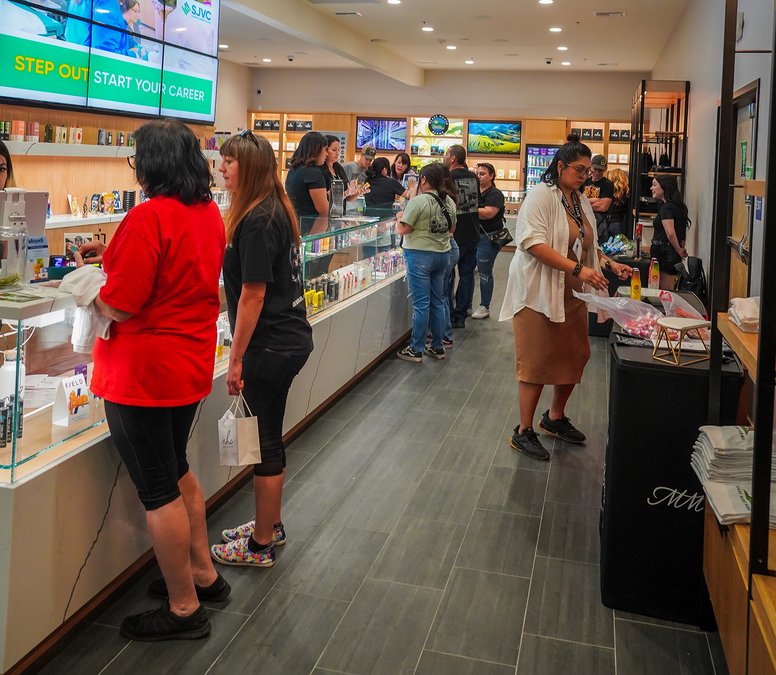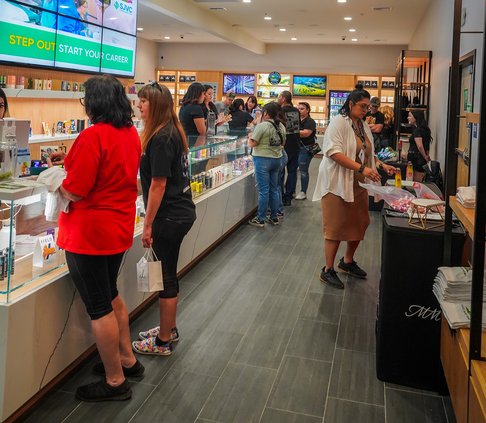The Turlock City Council considered a list of recommendations on Tuesday from its ad hoc committee on cannabis.
The ad hoc committee, of which councilmembers Cassandra Abram and Kevin Bixel are members, presented six areas studied by the committee and a consensus was attained regarding four those items:
* The city’s pilot cannabis program should become a permanent program, and the word “pilot” should be removed from its official designation.
* The committee suggested no new business types should be allowed to operate, feeling that retail, cultivation, manufacturing, distribution and laboratory testing are adequate. But as the industry expands throughout the state, the city should be allowed to reconsider these other business types.
* The committee recommended that the number of retail licenses remain at four.
* The committee recommended that no cap be administered to non-retail licenses, specifically growers and manufacturers.
Two other policy areas — whether the program should transition to a cannabis business tax license, and whether the city should adjust zoning requirements — need further discussion.
“I just want to point out that the benefit amount that has been produced to date through the cannabis program is $3.5 million, an average of about $1.2 million per year,” said city manager Reagan Wilson.
No action was taken by the city council on Tuesday, but they seemed to be in agreement on three of the four areas on which the ad hoc committee came to a consensus. Mayor Amy Bublak — always a firm no on cannabis policies — and councilmembers Rebecka Monez and Pam Franco seemed to favor some type of cap for non-retail licenses.
“My constituents are very much inclined to keep cannabis, eliminate the ‘pilot,’ and let it sit,” said Monez. “Here’s what my constituents are not inclined to do: make the west side the cannabis capital of the town. And if we don’t put a cap on the amount of growers, the west side is going to become the cannabis capital of the town. And I can’t vote for that.”
Franco wondered about new rules that would spread the retail outlets evenly across the four districts.
“Theoretically, there were four retail establishments, one for each district,” said Franco, the vice mayor. “As of now, District 2 has two and District 4 has two, and Districts 1 and 3 have zero. So, maybe we need to consider putting something into our new rules and regulations that if any of them go out, the new ones have to go into a district that currently doesn’t have one. Because I sure don’t want any more than two in mine.”
Abrams pointed out that cannabis funds have been used to bolster the police department and to renovate Columbia Park pool. She believes the city needs to explore expanding other business opportunities instead of capping them.
“It was my intention as the chair of this (ad hoc) committee to investigate what else is out there,” said Abrams, serving her first term as the representative from District 3. “Turlock only knows the two and half years we’ve been trying to do this. We’re missing out on a perspective of what everybody else has been doing for a lot longer.”
Abrams also highlighted the fact that Turlock has yet to have all four of its licensed retailers operating at the same time — Evergreen Market is expected to later this year — and the city doesn’t know what the program would look like when it’s fully operational.





